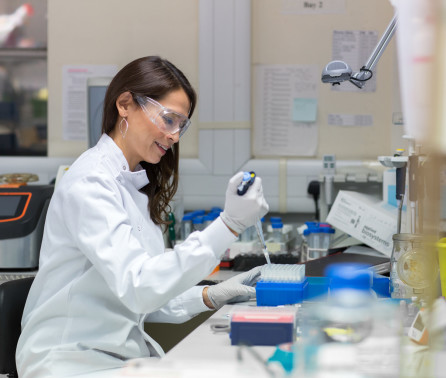Clinical decision support systems (CDSS) guide clinical care, including infection management and antimicrobial prescribing. Currently, these are often rule-based and only provide access to policies or guidelines.
At the CAMO, we are developing Artificial Intelligence (AI) and Machine Learning approaches to provide support at the point-of-care. These includes infection detection, diagnosis and clinical decision making.
- A CDSS web-based platform, EPIC IMPOC (funded by the NIHR), was developed to use AI to support doctors in prescribing personalised patient treatment. The platform uses a range of existing electronic data sources from the hospital and provides recommendations for infection management to the clinician. The platform allows better data visualisation of patient variables, previous clinical history, pathology and microbiology data. This can be visualised as graphs support the clinician’s decision making. The platform uses two AI algorithms to looks at fifty data variables. One algorithm looks at Case-Based Reasoning and the other looks at supervised machine learning.
- Supervised Machine Learning can be used to help clinicians determine the likelihood of a bacterial infection being present, and identify potential sites of infection. Case-Based Reasoning will then show which antibiotic is most likely to be effective for the individual by looking at similar cases and whether or not they were successfully treated. Recommendations can be scaled and changed based on individual clinical parameters taken from laboratory results and clinical history.

- By combining EPIC IMPOC with our innovative microneedle biosensor technology, we are investigating a closed-loop antimicrobial delivery (link to therapeutic solutions page). This results in a powerful tool to not only support infection diagnosis, but to then monitor and administer correct antimicrobial levels, leading to personalised patient dosing.
- Machine learning algorithms are combined with real-time amplification of genetic data to maximise information output from conventional and state-of-the-art diagnostic instruments, enabling high-level multiplexing, enhanced quantification and outlier detection without any hardware modification (link to innovative diagnostics page.)
Researchers
Professor Yi-Ke Guo
/prod01/channel_3/media/migration/research-groups/Guo,-Y--tojpeg_1588151057011_x4-1.jpg)
Professor Yi-Ke Guo
Professor of Computing Science
Dr Bernard Hernandez Perez
/prod01/channel_3/media/migration/research-groups/bernard-hp2_1605109113306_x4.jpg)
Dr Bernard Hernandez Perez
Research Associate
Dr Jesus Rodriguez Manzano
/prod01/channel_3/media/migration/research-groups/jesus-rodriguez-manzano_1605111016989_x4-1.jpg)
Dr Jesus Rodriguez Manzano
Chief Scientist / Lecturer in Antimicrobial Resistance and Infectious Diseases
Luca Miglietta
/prod01/channel_3/media/migration/research-groups/l-miglietta_1605105658271_x4.jpg)
Luca Miglietta
Research Assistant in Diagnostic Microbiology
Dr Pau Herrero-Viñas
/prod01/channel_3/media/migration/research-groups/pau-hv_1605105468842_x4.jpg)
Dr Pau Herrero-Viñas
Research Fellow
Yuting Xing
/prod01/channel_3/media/migration/research-groups/yuting-xing_1605203292107_x4.jpg)
Yuting Xing
Research Assistant

